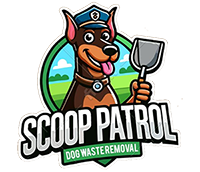Choosing the Best Healthy Dog Food A Comprehensive Review

Just like humans, dogs thrive on a balanced and nutritious diet. The food we provide you canine companions plays a vital role in their overall health, energy levels, lifespan, and quality of life.
Choosing the “best healthy dog food” can feel overwhelming, with countless brands and varieties vying for your attention.
This comprehensive guide aims to simplify the process, empowering you to make informed decisions that support your dog’s well-being.
Understanding Your Dog's Nutritional Needs
Before going into specific food types, it’s crucial to grasp the fundamental nutritional requirements of dogs.
Essential Nutrients:
Protein: The building blocks of tissues, crucial for growth, repair, and immune function. Dogs, being primarily carnivores, require a high protein intake.
Fats: A concentrated source of energy, essential for absorbing fat-soluble vitamins, and supporting healthy skin and coat.
Carbohydrates: Provide energy, although dogs don’t require them in the same quantities as humans. Easily digestible carbohydrates are preferred.
Vitamins: Organic compounds vital for various bodily functions, including metabolism, nerve function, and immune health.
Minerals: Inorganic substances essential for bone health, enzyme function, and electrolyte balance.
Water: Crucial for hydration, digestion, and temperature regulation.
Nutritional Needs Vary:
A dog’s dietary requirements change throughout its life. Factors influencing these needs include:
- Age: Puppies need more calories and protein for growth, while senior dogs may benefit from lower-calorie, easily digestible foods.
- Breed: Some breeds have specific predispositions to health conditions that diet can influence.
- Size: Small and large breeds have different metabolic rates and energy needs.
- Activity Level: Active dogs require more calories and protein than sedentary dogs.
- Health Conditions: Specific health issues (e.g., kidney disease, allergies) necessitate specialized diets.
The Raw Food Diet For Dogs
The raw food diet is a controversial topic with passionate advocates and cautious veterinarians.
What is a Raw Food Diet?
It typically consists of uncooked meat, bones, organs, and vegetables. Also known as BARF (Bones and Raw Food) or Biologically Appropriate Raw Food.
Pros of Raw Feeding (Advocates’ Claims):
- Improved digestion.
- Shinier coat.
- Increased energy.
- Smaller, firmer stools.
- Dental benefits from chewing bones.
Cons of Raw Feeding (Veterinarians’ Concerns):
- High risk of bacterial contamination (Salmonella, E. coli).
- Nutritional imbalances if not properly formulated.
- Potential for bone splinters to cause internal damage.
- Risk to human health from handling raw meat.
- Lack of scientific evidence to support all claimed benefits.
Important Considerations:
If considering a raw diet, extensive research and consultation with a veterinary nutritionist are crucial. Proper handling and hygiene are essential to minimize the risk of contamination.
Addressing Common Dog Food-Related Concerns
Dog Gut Health:
A healthy gut is crucial for nutrient absorption and overall well-being.
- Probiotics and prebiotics can support gut health.
- High-quality, easily digestible food is essential.
- Sudden diet changes can disrupt gut health.
Food Allergies and Sensitivities:
Common symptoms include itching, skin problems, and digestive upset. Identifying the allergen can be challenging. Elimination diets with novel proteins are often used for diagnosis. Limited-ingredient diets can be helpful.
Cost Considerations:
High-quality food may be more expensive but can lead to better health and fewer vet visits in the long run.
Consider the cost per feeding, not just the cost per bag.
Choosing the best healthy dog food is a significant responsibility, but with knowledge and careful consideration, you can make informed decisions that contribute to your dog’s health and happiness. Remember to consult your veterinarian for personalized advice, as they can provide tailored recommendations based on your dog’s specific needs.
While we at Scoop Patrol focus on providing a clean and healthy environment for your pets, we understand that proper nutrition is another cornerstone of their well-being. We encourage you to prioritize your dog’s diet alongside maintaining a clean and safe outdoor space.
For more tips on responsible pet ownership and creating a healthy environment for your furry friend, visit our blog or contact us today!

